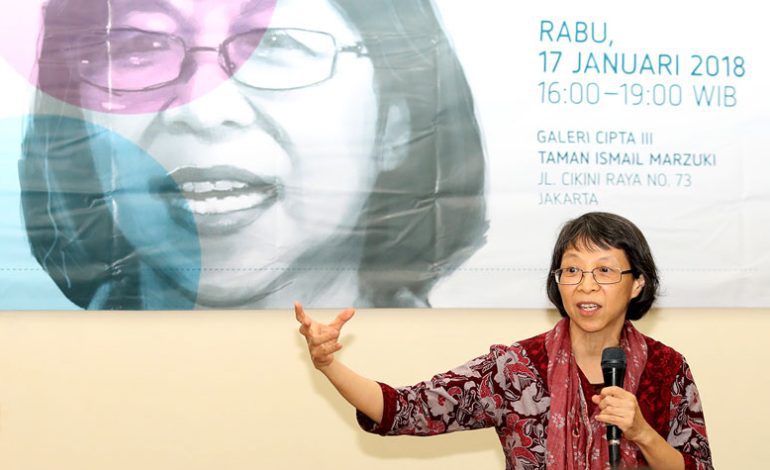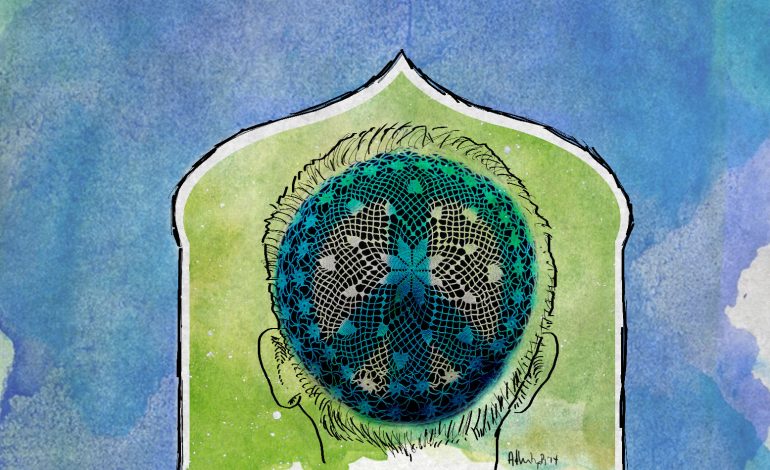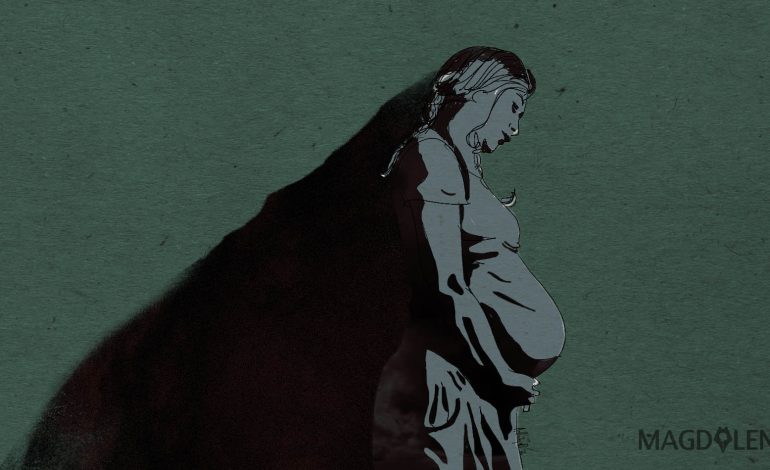Scholar, Activist Speaks of Hoax and Humanity in Post-Truth Era

Melani Budianta is best known for her contribution to advancing women’s movement in Indonesia, specifically during the Soeharto era. She is one of the initiators of Suara Ibu Peduli (the Voice of Concerned Mothers), a movement that played a significant role in overthrowing the New Order Regime. Dubbed “milk politics” they highlighted the government’s failure to protect mothers and children at the height of the Asian monetary crisis.
The women simply distributed milk, food, and medicines to disadvantaged women, but it was a notable point of women activism in Indonesia as it succeeded in redefining New Order’s construction of “mother” back when the word connoted domestic matters, an apolitical entity. Melani was also among the few who were outspoken about the mass rapes of Indonesian ethnic Chinese women during the 1998 riot by writing an open letter to the Indonesian Ministry of Women Empowerment.
Born in Malang, East Java in 1954, Melani is a well-known scholar who had published numerous influential writings and academic journals on gender and socio-cultural issues in Indonesia. She earned her PhD on Literature from Cornell University in the United States, and she is now a literary critic and lecturer at the University of Indonesia.
During a public discussion in mid January held by the Literature Committee of Jakarta Arts Council, she shared her insights on the pervasive phenomenon that has been a national and global concern: hoax.
“What kind of civilization gives so much room for hoax? What kind of thinking climate dominates this era? And how should we respond to this phenomenon?” She asked these questions to open the discussion themed “Hoax, Literature, and Humanity” at Galeri Cipta III, Taman Ismail Marzuki last week. The event has been held regularly since 2010 involving numerous influential figures to discuss literature, social, and cultural issues in Indonesia. Melani is the 10th public figure featured, with previous speakers including writers N.H. Dini and Budi Darma.

“In post-truth era, truth and objective facts are not important. Many people tend to favor opinion that is in line with their own personal views, ideologies and principles, even if it doesn’t correspond with facts. They take side based on their biases and emotions, instead of what is objectively right,” she said, but adding that we should not be disheartened or pessimistic.
“We should keep in mind that there is still silent majority. There are still people with open-minded attitude who might read our comments on social media or at least think about what we say, even if the person we’re talking to simply dismiss whatever we say. It is still our responsibility to not let hoax win. However, of course, sometimes, we still have to block or mute some people to stay sane,” she said, chuckling.
“We are no longer capable of listening to each other…. Any opinion that doesn’t exactly fit with what we believe in is not valid.”
Melani also talked about the “information-overload era” when there is no “gatekeeper” to filter the abundant information and the “clickism era,” when people feel the need to instantly share and spread information on social media, regardless of its accuracy and factuality.
The digital revolution of the 21st century has provided some new ways of interaction. In the last few centuries, religious influence had been on a decline following the development of science and rationalism. But social media has become an effective medium to divide people, through which ultra-nationalism and xenophobia flourish again, empowered by collective approval online.
“Often, there is no dialogue. We are no longer capable of listening to each other. We had this presumption that whatever is being said by person A or person B will always be wrong. Any opinion that doesn’t exactly fit with what we believe in is not valid,” she added.
Does it mean that dialogue is impossible to happen these days?
Melani mentioned a strategy proposed by author Feby Indirani who attempted to hold a healthy dialogue with her sister who has opposing views from her.
“Based on the way they dress, you can already tell how different they present themselves. Feby wears casual clothes like shirt and jeans, while her sister is fully covered and barely reveals any skin. When Feby asked whether her sister agreed with the existence of LGBT, her sister firmly said ‘no’. But then, Feby started making follow-up statements to find a middle-ground such as, ‘I think that LGBT people shouldn’t be killed because of their sexual orientation,’ to which her sister passionately responded, ‘Yes I agree with you, LGBT people shouldn’t be killed.’ Feby stated again, ‘I think LGBT people should be allowed to get education,’ and her sister agreed again and so on. This example shows that what seems to be two different views might still have a middle ground somewhere. We just need to try harder to talk and hold a dialogue,” Melani told the audience. *Photo by Eva Tobing, Jakarta Arts Council






















